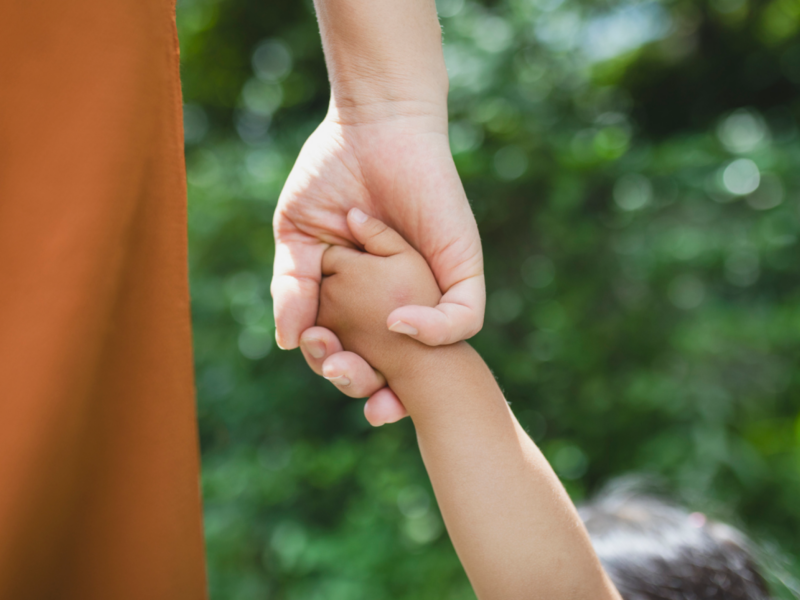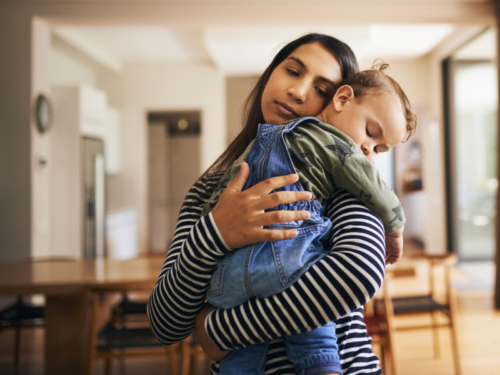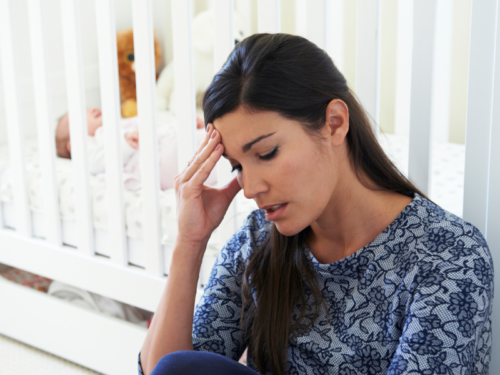
Table of Contents
How Dejah J. Managed Postpartum Depression With Charlie Health
Written By: Charlie Health Editorial Team

Clinically Reviewed By: Dr. Don Gasparini
Updated: April 26, 2024
5 min.
Charlie Health offered Dejah long-overdue postpartum depression treatment and supported her on her parenting journey.
Learn more about our Clinical Review Process
Table of Contents
In the first year after giving birth, one in seven people develop postpartum depression (PPD), a mood disorder marked by persistent feelings of sadness and hopelessness affecting daily life. Although the condition is relatively common, and a range of treatment options exist, stigma and inadequate access to mental healthcare treatment options keep many from getting the help they need. Charlie Health’s maternal mental health program fills this gap — we offer Charlie Health clients access to perinatal mental health treatment for postpartum anxiety, depressive symptoms, and more.
After her daughter was born, Charlie Health alum and first-time mom Dejah J. spent nearly a year in the throes of PPD, unable to get treatment due to local provider shortages. We sat down with Dejah to see more about how Charlie Health played a role in both her PPD recovery and parenting journey. Keep reading to learn how Dejah managed her depressive symptoms and improved her mental health with our maternal mental health program (and see program reviews from other Charlie Health clients here).

You don’t have to face postpartum depression alone
Charlie Health offers virtual mental health support with other people who get it.
What led you to seek postpartum depression treatment at Charlie Health?
When my daughter was about one year old, I was referred to Charlie Health by a local mobile crisis line. I was feeling helpless like I couldn’t keep going. I’d known for a while that something wasn’t right with my mental health and that I needed mental healthcare, but because I live in a rural area where you have to wait six or seven months to see a provider, I didn’t get help until Charlie Health. It was nice to finally have the validation of a postpartum depression diagnosis and get some support because I’d been bottling up a lot of feelings.
My pregnancy and the first year of my daughter’s life were very up and down. I got pregnant unexpectedly a couple months before I was supposed to get a hysterectomy. I had severe hyperemesis gravidarum and a really traumatic delivery. After she was born, my daughter was sent to the NICU, and her father and I couldn’t have any support at the hospital because it was the height of the pandemic. I was only 21, and it was a lot to deal with. When she was finally discharged, I felt on top of the world, but soon after, my dog suddenly died, and my daughter ended up back in the hospital with RSV. I was terrified to leave my house or see friends because she was so tiny and sickly. Before Charlie Health, I felt like I couldn’t tell anyone how sad and exhausted I was because I had this beautiful baby that I never thought I’d be able to have.
At what point in Charlie Health did you notice a shift in your mental health?
About six or seven weeks into the program, I went out to dinner with a friend, and I felt peppy and excited to be there. My friend noticed and said I seemed different than the last time we’d seen each other. I remember making the connection at that moment that Charlie Health was helping me with my postpartum depression. Don’t get me wrong, it’s a lot of work, and there were days I felt tired and didn’t want to go to group, but it was worth it.

Do you have any advice for others dealing with postpartum depression?
I think it’s easy for new moms to feel like they’re on the backburner because now everyone’s focus is on this new, beautiful baby, but you and your mental health still matter. Your body just went through the biggest change of its life, hormones are all over the place, and your life has changed forever—it’s okay to struggle when that happens, and it’s important to reach out if you think you’re dealing with postpartum depression, postpartum anxiety, or something else. There’s no shame in needing help as a mom. It’s important to get individual therapy or help from other mental health services if you need it.
How has Charlie Health helped you as a parent?
Charlie Health taught me how to regulate my emotions and put things in perspective, which has made it easier to help my daughter manage her own emotions. I also have a lot longer of a fuse now, which is great because my daughter is a very stubborn toddler. Of course, I get overwhelmed and need to catch my breath sometimes, but I’m able to enjoy parenting now; it’s not as scary or depressing as it used to be.
There was one Charlie Health therapist in particular who made me feel good about parenting. During my last group, she said the sweetest things about how great of a mom she knew I’d become. I don’t have that support from my family, but I had that at Charlie Health. I always used to feel like I wasn’t good enough as a parent, but now I know that I’m trying to be the best mom I can be. My daughter and I are growing together, and that’s about the best you can do.
Maternal mental health services at Charlie Health
If you or a loved one are struggling with postpartum depression (PPD), a postpartum anxiety disorder, or another perinatal mental health condition, Charlie Health is here to help. Charlie Health’s virtual Intensive Outpatient Program (IOP) provides more than once-weekly mental health treatment for young people and families dealing with serious mental health conditions, including postpartum anxiety, depression, and more. Our expert clinicians incorporate evidence-based therapies into individual therapy, family therapy, and group sessions. If you’re struggling with an anxiety disorder or other mental health condition and could benefit from medication, the Charlie Health medical team also offers medication management as needed.




